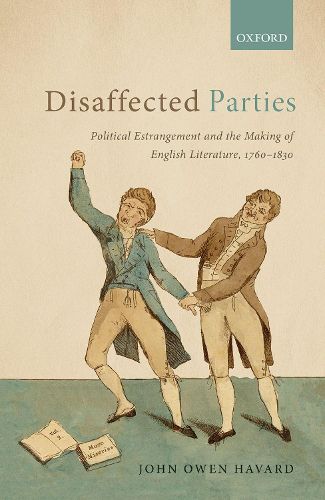Readings Newsletter
Become a Readings Member to make your shopping experience even easier.
Sign in or sign up for free!
You’re not far away from qualifying for FREE standard shipping within Australia
You’ve qualified for FREE standard shipping within Australia
The cart is loading…






Disaffected Parties re-examines the relationship between literature and politics during the long Romantic age, providing a prehistory for recent concerns with partisan deadlock and disaffected political attitudes. Its chapters provide carefully researched accounts of the political affiliations of major authors including Laurence Sterne, Samuel Johnson, Maria Edgeworth, Jane Austen, and Lord Byron. At the same time, drawing upon original research into national and transatlantic print culture and recent critical discussions of political assembly, the book provides a newly integrated account of political parties and surrounding discontent during the 1760-1830 period, together with a deeper history of the origins of partisanship and cynicism towards politics, reaching back to the age of Jonathan Swift. At its widest, the book contributes to recent discussions of political feeling and theorizes new approaches to the relationship between aesthetics and politics.
$9.00 standard shipping within Australia
FREE standard shipping within Australia for orders over $100.00
Express & International shipping calculated at checkout
Disaffected Parties re-examines the relationship between literature and politics during the long Romantic age, providing a prehistory for recent concerns with partisan deadlock and disaffected political attitudes. Its chapters provide carefully researched accounts of the political affiliations of major authors including Laurence Sterne, Samuel Johnson, Maria Edgeworth, Jane Austen, and Lord Byron. At the same time, drawing upon original research into national and transatlantic print culture and recent critical discussions of political assembly, the book provides a newly integrated account of political parties and surrounding discontent during the 1760-1830 period, together with a deeper history of the origins of partisanship and cynicism towards politics, reaching back to the age of Jonathan Swift. At its widest, the book contributes to recent discussions of political feeling and theorizes new approaches to the relationship between aesthetics and politics.